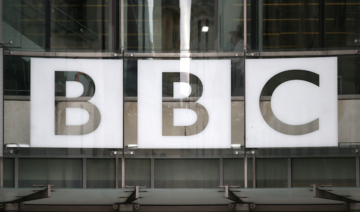HANOI: In Vietnam, where the state is fighting a fierce online battle against political dissent, social media “influencers” are more likely to be soldiers than celebrities.
Force 47, as the Vietnamese army’s online information warfare unit is known, consists of thousands of soldiers who, in addition to their normal duties, are tasked with setting up, moderating and posting on pro-state Facebook groups, to correct “wrong views” online.
According to a Reuters review of provincial-level state media reports and broadcasts by the army’s official television station, Force 47 has since its inception in 2016 set up hundreds of Facebook groups and pages, and published thousands of pro-government articles and posts.
Social media researchers say the group may be the largest and most sophisticated influence network in Southeast Asia. And it is now playing a prominent role in the country’s intensifying conflict with Facebook.
After being approached by Reuters this week, a Facebook source said the company had removed a group called “E47,” which had mobilized both military and non-military members to report posts they did not like to Facebook in an effort to have them taken down. The source said the group was connected to a list of Force 47 groups identified by Reuters.
A Facebook spokesperson confirmed that some groups and accounts were taken down on Thursday for “coordinating attempts to mass report content.” A company source said the action was one of Facebook’s largest takedowns initiated under its mass reporting policy.
But many of the Force 47 accounts and groups identified by Reuters remain active. Since they are operated by users under their real names, they do not violate Facebook policies, the company source said.
Vietnam’s foreign ministry, which handles enquiries to the government from foreign media, did not immediately respond to a request for comment on the takedown.
Unlike in neighboring China, Facebook is not blocked in Vietnam, where it has 60 million to 70 million users. It is Vietnam’s main platform for e-commerce and generates around $1 billion in annual revenue for the company.
It has also become the main platform for political dissent, launching Facebook and the government into a constant tussle over the removal of content deemed to be “anti-state.”
Vietnam has undergone sweeping economic reforms and social change in recent decades, but the ruling Communist Party retains a tight grip over media and tolerates little dissent.
Last year, Vietnam slowed traffic on Facebook’s local servers to a crawl until it agreed to significantly increase the censorship of political content in Vietnam. Months later, authorities threatened to shut down Facebook in Vietnam entirely if it did not locally restrict access to more content.
In a statement to Reuters, a Facebook spokesperson said the company’s goal was to keep its services in Vietnam online “for as many people as possible to express themselves, connect with friends and run their business.”
“We’ve been open and transparent about our decisions in response to the rapid rise in attempts to block our services in Vietnam,” the spokesperson said.
Vietnam does not have the wherewithal to sustain a Chinese-style “Great Firewall” and develop local social media alternatives, said Dien Luong, a visiting fellow at the ISEAS-Yusof Ishak Institute in Singapore.
“This has paved the way for Facebook to become the platform of choice for Force 47 to safeguard the party line, shape public opinion and spread state propaganda.”
’SKILLED AND MALICIOUS’
There is no official definition of what constitutes a “wrong view” in Vietnam. But activists, journalists, bloggers and — increasingly — Facebook users, have all received hefty jail terms in recent years for spreading “anti-state propaganda,” or opinions which counter those promoted by the Party.
Last week, Le Van Dung, a prominent activist who regularly broadcasts live to thousands of followers on Facebook, was arrested after more than a month on the run, according to a police statement.
Dung, who goes by “Le Dung Vova” was detained on charges of “making, storing, spreading information, materials and items for the purpose of opposing the state,” under Article 117 of Vietnam’s Penal Code.
He faces up to 20 years in prison if found guilty.
Force 47 takes its name from Directive 47, a policy document issued by the army’s General Political Department on Jan. 8, 2016. Analysts say it was created as an alternative to hiring civilian “opinion shapers” — or “du luan vien” — that had operated on a smaller, less successful scale.
“Since the ‘du luan vien’ were not as well trained in Party ideology or as conservative as military officials, their performance was not as good as expected,” said Nguyen The Phuong, a researcher at the Saigon Center for International Studies. “Force 47 is also less costly. Military officials consider it part of their job and don’t ask for an allowance.”
The size of Force 47 is not clear, but in 2017, the general in charge of the unit at the time, Nguyen Trong Nghia, said it had 10,000 “red and competent” members. The true number could be much higher: the Reuters review of known Force 47 Facebook groups showed tens of thousands of users.
The Facebook source said the E47 group it had taken action against was made up of an active membership of military and non-military members.
Nghia now heads the main propaganda arm of the Party. Vietnam’s information ministry recently promulgated a social media code of conduct that closely resembles Force 47 directives, urging people to post about “good deeds” and banning anything that affects “the interests of the state.”
’STRUGGLE ON THE INTERNET’
In March, conferences were held at military bases across Vietnam to mark five years since the creation of Force 47.
State media reports about the meetings named at least 15 Facebook pages and groups it said were controlled by Force 47 which collectively had over 300,000 followers, according to a Reuters analysis of those groups.
Rather than being a single army unit, Force 47 soldiers appear to carry out their activities alongside their usual duties and create locally targeted content, the reports revealed.
In addition to Facebook, Force 47 creates anonymous Gmail and Yahoo email addresses, and accounts on Google’s YouTube and Twitter, according to the reports.
YouTube said it had terminated nine channels on Friday for violating its policies on spam, including a channel identified by Reuters as a suspected Force 47 operation.
Twitter said it had not seen any activity by Force 47.
Many of the Facebook groups reviewed by Reuters played on patriotic sentiments with names such as “I love the Socialist Republic of Vietnam,” “Vietnam in my Heart,” “Voice of the Fatherland” and “Believe in the Party.”
Some groups, such as “Keeping company with Force 47” and “Roses of Force 47” were obvious in their affiliation, while others — such as “Pink Lotus” and a few groups that used the names of local towns in their titles — were more subtle.
The posts varied in content, with many extolling Vietnam’s army, founding leader Ho Chi Minh, or Party chief Nguyen Phu Trong. Others showed screenshots of “wrong information” posted by other Facebook users, marked with a large red “X.”
“These developments unfolding in Vietnam are scary and have expanded with impunity,” said Dhevy Sivaprakasam, Asia-Pacific policy counsel at Internet rights group Access Now.
“We are witnessing the creation of a reality where people are not safe to speak freely online, and where there’s no concept of individual privacy.”
(Reporting by James Pearson; Additional reporting by Elizabeth Culliford in New York and Fanny Potkin in Singapore; Editing by Jonathan Weber, Lisa Shumaker and William Mallard)


























